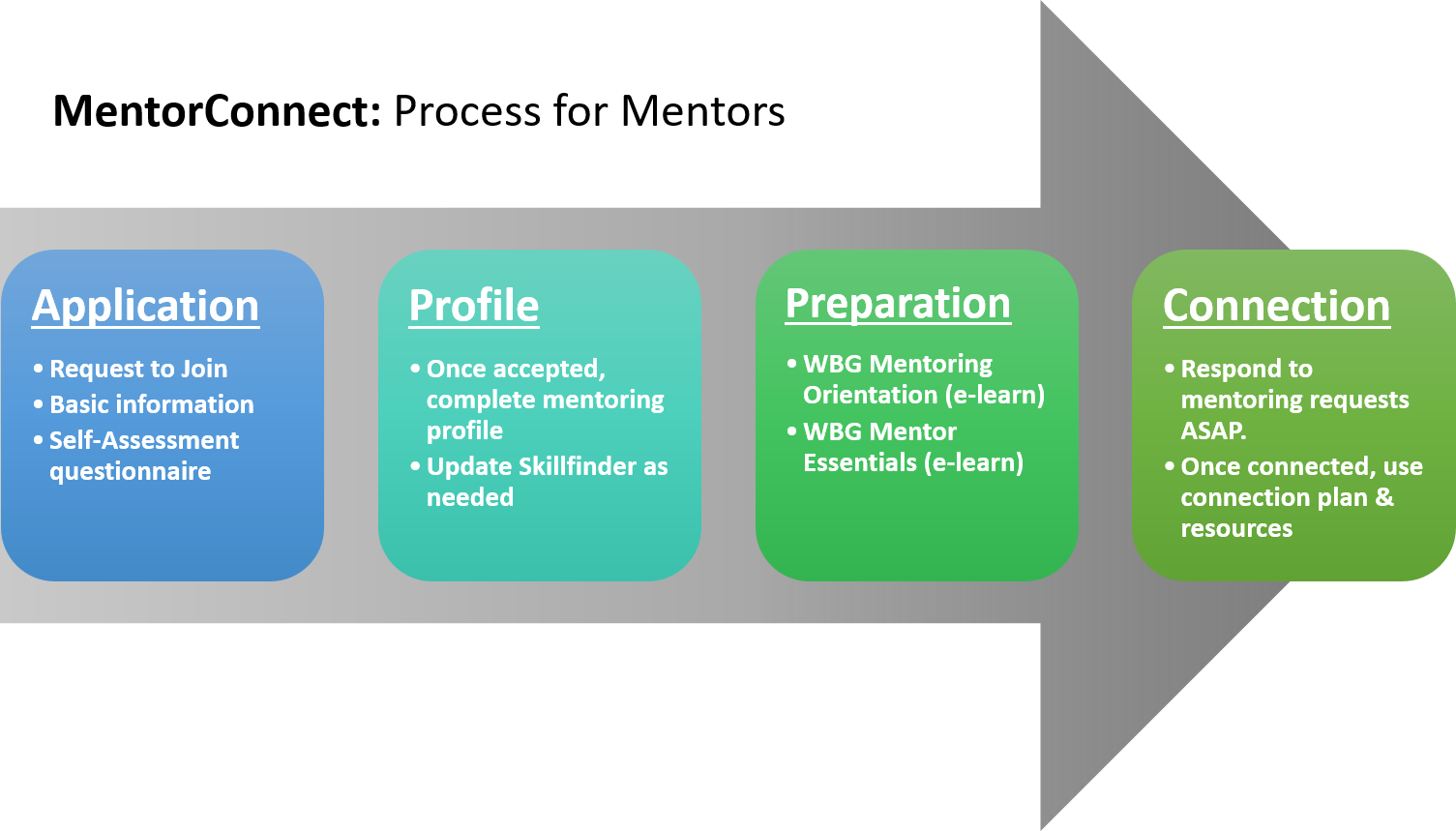
Frequently Asked Questions
- What am I expected to do? Above all else, listen. Listen to your mentees needs and goals. You are not expected to solve problems, rather your role is to help identify and guide the solving of problems, to provide guidance and wisdom, and to encourage and support. If appropriate, complete related mentoring training.
- How long will the commitment be? For MentorConnect. we ask mentors be willing to make commitments of up to six months. Depending on needs of the mentee, it may be shorter than six month in some cases. If a mentor must leave the relationship early, we request at least one month's notice in order to search for a replacement mentor with similar background.
- How much time do I need to commit? Practically speaking, mentors can expect to provide their mentee with about 1-2 hours of support and interaction per month (via meetings, emails, SMS/IM, etc). Additional time may be needed depending on the specifics of the relationship.
- See MentorConnect FAQs for more
Mentor DO's
- Set aside time for the mentoring process, honor appointments, and follow-through on commitments to the mentee.
- Be flexible on meeting times and modalities. Sometimes F2F meetings are not possible.
- Respond to communications from your mentee in a timely manner.
- Keep information that your mentee has shared with you confidential.
- Establish open communication and a forum for idea exchange.
- Help build self-confidence and offer encouragement.
- Provide honest and timely feedback to your mentee.
READY TO GET STARTED?
Click HERE to join MentorConnect as a Mentor
Mentor DON'Ts
- Have an answer for everything or 'silver bullet for every problem a mentee may face.
- Solve mentees problems for them or act as a personal psychologist.
- Take the place of a Manager and/or Supervisor; mentors are not responsible for HR-related matters that formal Managers would normally handle.
- Be too busy when the mentee needs your friendship or your support. If you do not have time, give the mentee a heads up, so that they know when they can reach you.
- Criticize or minimize.
- Share information about mentee outside of the relationship unless agreed to.